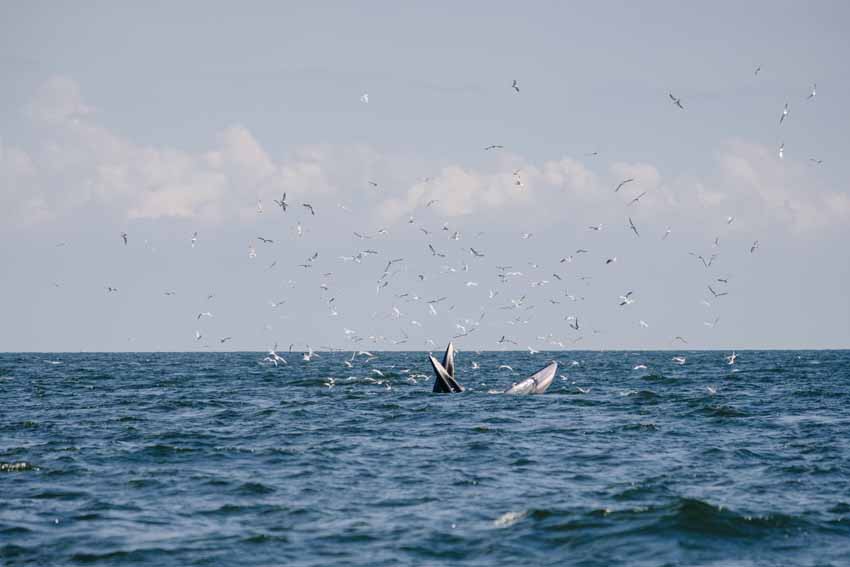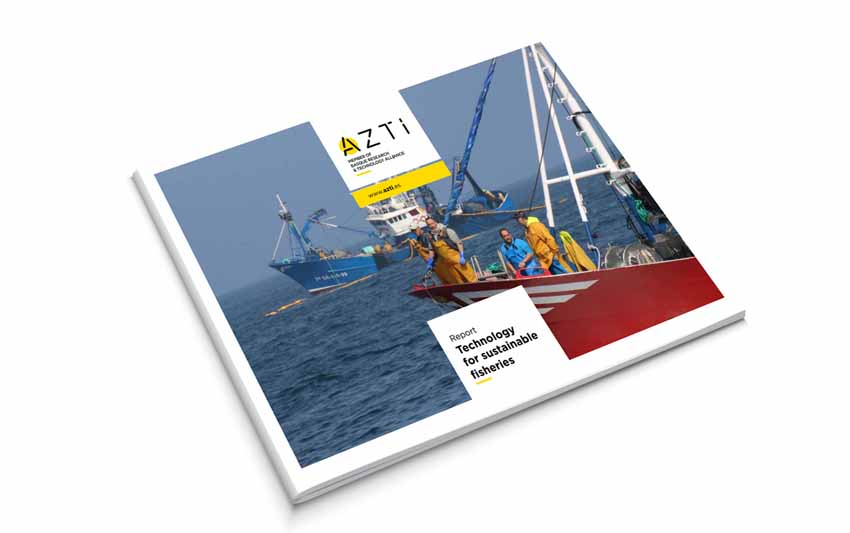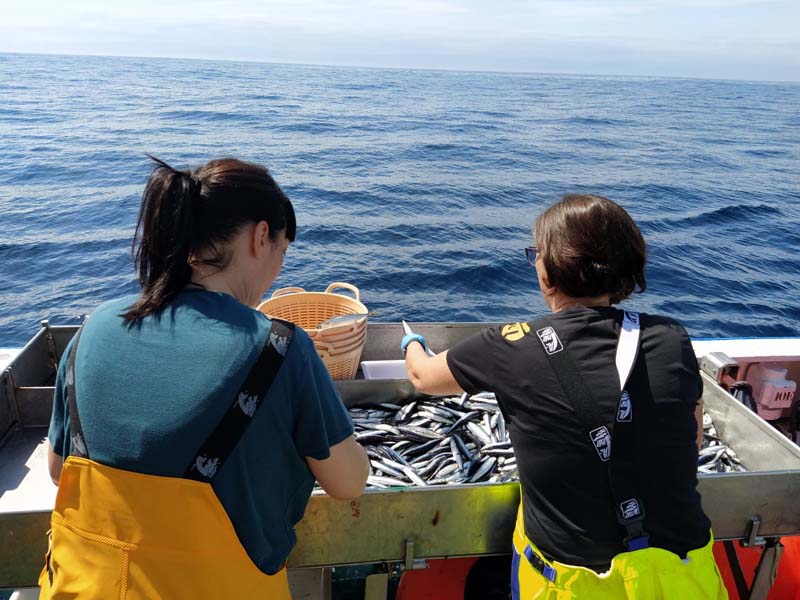A new way of reducing by-catch of protected and endangered species in the Atlantic
Últimas noticias
Una mirada LGTBIQ+ al reino animal
Circular Economy in Action: Valorisation of By-products through Projects like PRIMA NEWFEED
Strategic Perspectives: Highlights from the Food4Future World Summit for Business Leaders
MAITE ERAUSKIN-EXTRAMIANA. Sustainable fisheries management expert at AZTI
Bycatch, the unintentional capture of unwanted species during fishing activities, is an ongoing concern for the conservation of marine biodiversity. To address this challenge, Europe has taken a major step forward in marine conservation by launching several initiatives, including the “Marine Beacon” project, funded by the Horizon Europe programme. This project aims to improve our knowledge of bycatch of protected, endangered and threatened species such as marine mammals and seabirds, turtles and sharks in the Atlantic.
Over the next four years, the “Marine Beacon” project will seek not only to better understand this phenomenon, but also to develop effective tools to monitor and mitigate the negative impacts of bycatch. Led by the Marine Institute of Ireland, the project will bring together a multidisciplinary team of 21 research centres from 9 European countries, including AZTI.
One of the initiatives that can be highlighted within the project will be led by AZTI researchers in collaboration with the Spanish Institute of Oceanography (IEO-CSIC). The study will focus on 7 different case studies with the specific aim of developing tools to reduce by-catch and subsequent mortality of protected species of marine mammals and birds, turtles and elasmobranchs. One of the case studies, led by AZTI, focuses on bycatch in the Atlantic tuna fishery.
Índice de contenidos
Bycatch mitigation and cooperation strategies
Key to our approach is active collaboration with all stakeholders, including representatives of the tuna fishing industry, to develop a common understanding of how bycatch can be effectively mitigated. This collaborative approach is fundamental to developing mitigation tools that are not only effective, but also economically affordable, practical and safe for fishing vessels.
Bycatch is a significant threat to marine biodiversity worldwide. Monitoring these species and their interactions with fisheries in environments as dynamic and challenging as the ocean has been ineffective in the past. “Marine Beacon” will develop and test new statistical methods for modelling the distribution of large pelagic sharks, an effort that will not only benefit this group of species, but also serve as a model for other oceans.

AZTI: benchmarks in bycatch mitigation
AZTI is no stranger to efforts to reduce by-catch, having been a leader for years in the introduction of selectivity devices and good fishing practices in the tuna sector to minimise the environmental impact of fishing gear and improve its selectivity by fish size. These initiatives include:
- Innovative technology: Use of advanced technology to monitor and minimise by-catch, including tracking systems, sensors and on-board cameras.
- Characterisation protocols: Implementing specific protocols to study bycatch in purse seine fisheries, allowing a better understanding of the status of PETs (Protected, Endangered and Threatened Species).
- Working with fishing fleets: Working with global fishing fleets to develop strategies to avoid bycatch and facilitate the return process, reducing stress on species and fishermen and increasing survival rates.
The “Marine Beacon” project represents a major step forward in the protection of marine biodiversity and demonstrates the power of research and international cooperation in the search for a more sustainable future for our oceans.







